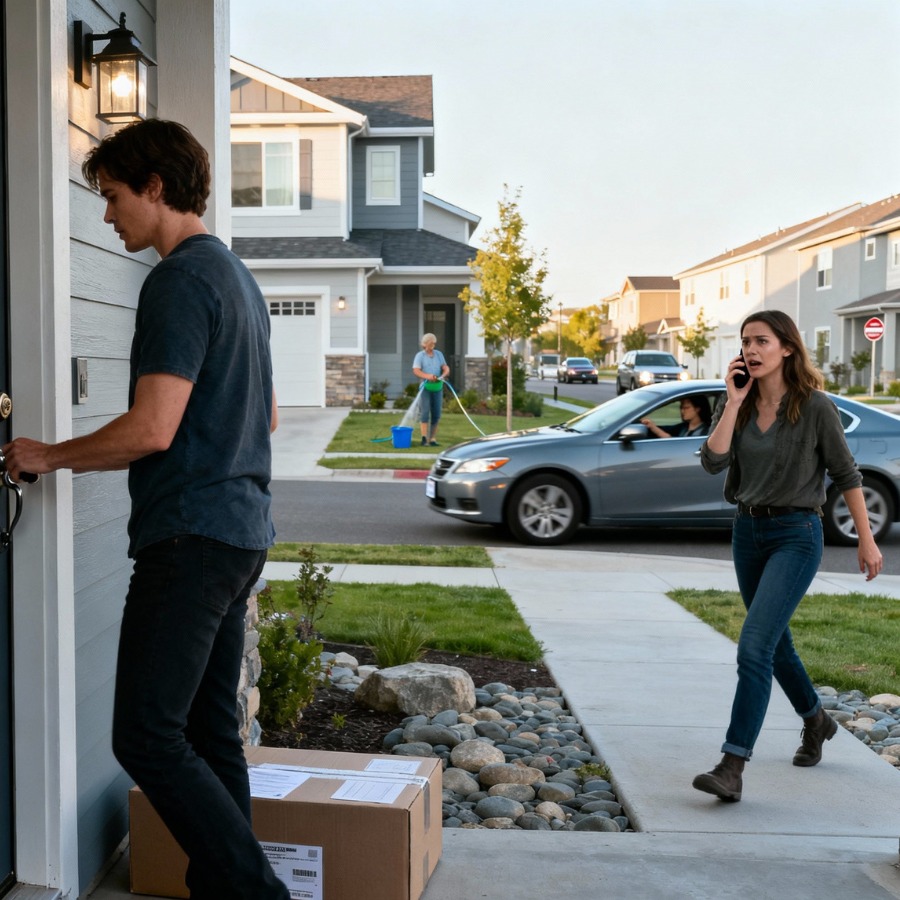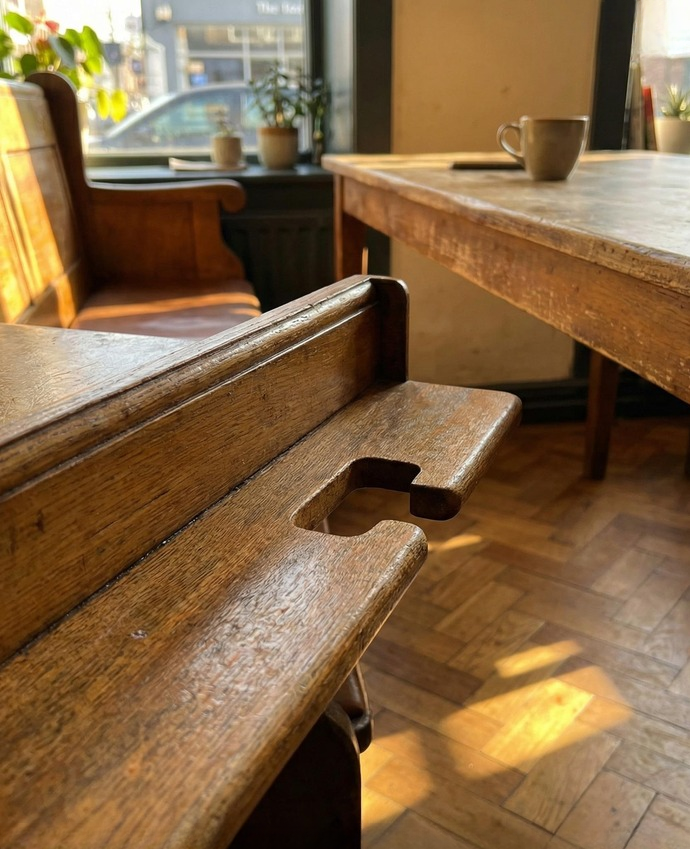
I was twenty-six when my parents told me I was the family failure.
The words hit harder than I expected—maybe because they sounded rehearsed, like something they had said to each other many times before.
We were sitting around the oak table that had survived every move, every argument, every phase of our family history. The overhead light buzzed faintly, and the smell of Mom’s meatloaf—once my childhood comfort—suddenly made my stomach twist.
Veronica’s face glowed from Dad’s iPad screen. She was video-calling from her apartment in San Francisco, her hair perfect, her voice bright, her fiancé Marcus laughing in the background at some joke she had made.
Then she dropped her bomb.
“Marcus and I found a place in Marin County. It’s perfect. Three bedrooms, a garden, close to the schools. We just need a little help with the down payment.”
“A hundred thousand should make it comfortable,” she added, as casually as if she were asking for a glass of water.
Dad turned to Mom.
That silent marital telepathy flickered between them.
Then he said, “Consider it done. We’ll wire it tomorrow.”
The fork slipped from my hand.
“You’re giving her $100,000?”
Mom didn’t even blink. “We’re investing in her future.”
“And I wasn’t worth an investment?”
Dad’s eyes—gray and cold as coins—locked onto mine. “You’ve accomplished nothing, Lina. You’ve coasted. Veronica has proven herself. She’s responsible. She’s built a life. You—” He gestured vaguely toward my worn sweater and the stack of bills I’d brought to discuss—“you’re still trying to figure things out.”
There it was.
The verdict.
The failure stamp.
I stood up. “Okay,” I said. My voice trembled, but it was steady enough to cut through the silence.
Mom reached for me. “Sit down, Lina. We’re not done with dinner.”
But I was already sliding on my coat.
“I am,” I said, and walked out into the cold night air.
That was the last time I saw them for two years.
Those two years were the hardest—and the most defining—of my life.
I worked three jobs.
I slept on a mattress on the floor.
I ate canned soup and cheap pasta.
But for the first time in my life, every inch of progress was mine.
I taught myself coding at night, watching tutorials on a borrowed laptop. I failed a lot. I cried a lot. But eventually, things started happening. One small freelance job led to another. One client recommended me to three more.
And one night, sitting on the floor with a mug of dollar-store tea, I opened an email that changed everything:
“We would like to offer you a full-time contract as a junior developer.”
The salary wasn’t huge, but it was stable. Mine. Earned.
Fast-forward eighteen months, and I was leading a small team—then training others—then building an app that ended up getting attention at a tech conference.
It got funded.
I got promoted.
And suddenly, I wasn’t “figuring things out” anymore.
I was building something.
With my savings, I bought a run-down little cottage on the edge of town. It wasn’t glamorous, but it was mine. The paint peeled. The porch creaked. The garden looked like a jungle trying to overtake the world—but I loved it.
And for once, I wasn’t comparing myself to Veronica.
Then, one afternoon, everything shattered again.
I was in my driveway pulling weeds when a sleek silver SUV slowed in front of my house. The window rolled down, and Veronica leaned out.
She stared at the cottage. Then at me.
Her expression twisted into disbelief.
“Lina?” she said, as if she’d seen a ghost.
I stood up, brushing dirt from my hands. “Hey, Veronica.”
She stepped out of the car, heels sinking slightly into the gravel. “This is your place?”
“Yes.”
“You… bought a house?” She blinked rapidly, her perfect mask cracking.
“Yeah. A year ago.”
Her face went pale. She turned, marched to her car, grabbed her phone, and dialed Dad.
I could hear his muffled voice through the receiver.
She didn’t even greet him. She just started yelling:
“Dad, you need to come see this.
NOW.
Lina bought a house.
She’s doing better than me.”
The words hung in the air like smoke.
I felt my heart crack—not because of her tone, not because she sounded angry, but because of what came next.
She lowered her voice, but not enough.
“Dad… we need help. Marcus lost his job last month. The loan’s killing us. We’re drowning. And you gave us everything. There’s nothing left.”
She wasn’t calling to brag.
She was calling out of panic.
She ended the call and collapsed onto the porch steps.
I sat beside her.
For a moment, we were just two sisters—stripped of childhood roles, parental favoritism, expectations.
Just human.
“How long have things been bad?” I asked quietly.
She wiped her eyes. “A year. I didn’t want to tell anyone. You know Mom and Dad—they’d panic. They’d blame me. And Marcus…” Her voice cracked. “I don’t want him to think I can’t handle life.”
I nodded. I knew that feeling too well.
After a long silence, she whispered, “I’m sorry… about that night. About everything. I was used to being the favorite. I didn’t realize how badly they treated you.”
Something inside me loosened—years of bitterness shifting.
I stood up and walked into the house, returning with two mugs of tea. We sat on the porch, sipping quietly.
Then she asked, “How did you do it? How did you… rebuild?”
I told her. Everything. The tears. The exhaustion. The tiny victories. The jobs. The cottage.
She listened. Really listened.
Hours passed before Dad’s car finally pulled up.
He walked toward us, stiff, uncertain, almost… ashamed.
His eyes scanned the porch, the garden, the house—and then me.
“Lina,” he said quietly. “You did all this?”
“Yes.”
He swallowed hard. “Without help.”
“Yes.”
A long silence settled.
Then, for the first time in my life, I saw something unfamiliar in his expression:
Regret.
Deep, painful, honest regret.
“We were wrong,” he said, voice shaking. “Your mother and I… we failed you. We convinced ourselves that Veronica was the strong one. But you—” His voice cracked. “You proved us wrong.”
I didn’t say anything.
I let him feel it.
After a long moment, he added, “If you’ll let us… we’d like to be part of your life again.”
Veronica looked at me, eyes hopeful.
I took a breath—slow, steady.
“I don’t want the money,” I said. “I don’t want repayment. I don’t want comparisons. If you come back into my life, it’s on equal ground.”
Dad nodded. “Of course.”
“And,” I added, looking at Veronica, “you’re not alone. We’ll figure out your situation. Together.”
Her shoulders sagged with relief.
Dad stepped closer, unsure if I’d pull away. I didn’t.
We hugged—awkward, trembling, overdue.
For the first time in years, the air felt warmer.
The family that broke me was standing on my porch—not perfect, not healed, but trying.
And maybe… that was enough.



